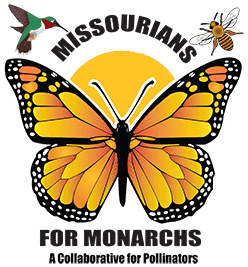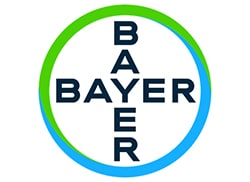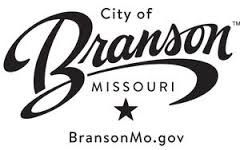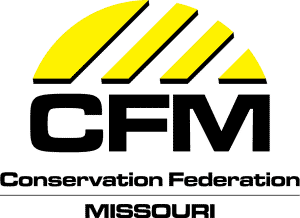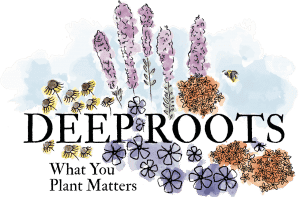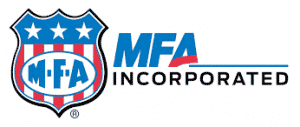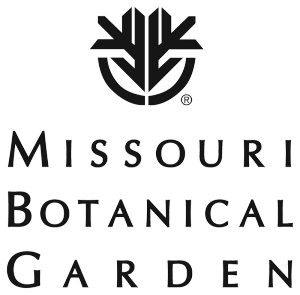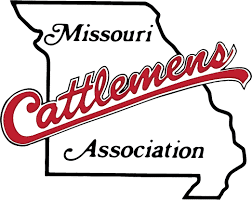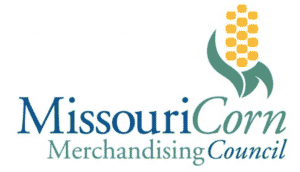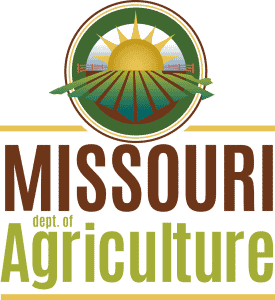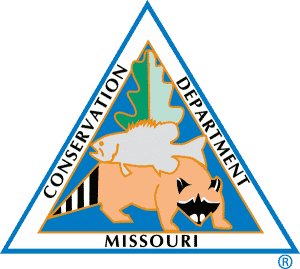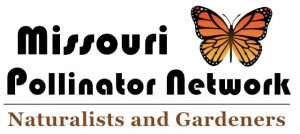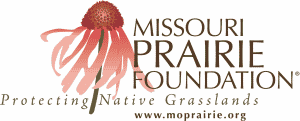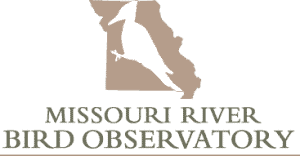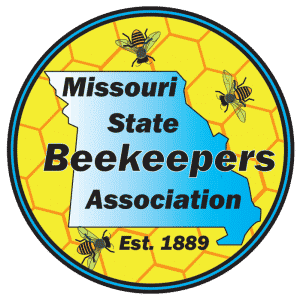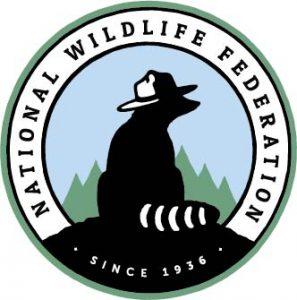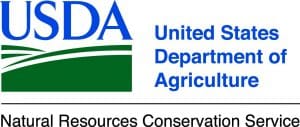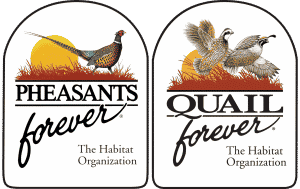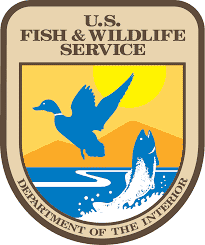Ameren Missouri has been providing electric and gas service for more than 100 years, and the company’s electric rates are among the lowest in the nation. Ameren Missouri’s mission is to power the quality of life for its 1.2 million electric and 132,000 natural gas customers in central and eastern Missouri. The company’s service area covers 64 counties and more than 500 communities, including the greater St. Louis area. For more information, visit Ameren.com/Missouri or follow us on Twitter at @AmerenMissouri or Facebook.com/AmerenMissouri.
Associated Electric Cooperative, Inc. (AECI) & the Association of Missouri Electric Cooperatives (AMEC) are both proactively working to protect the monarch and other pollinators and keep electricity reliable and affordable for the six regional and 51 local electric cooperatives that own the member-owned wholesale power generator. AMEC has helped create a habitat demonstration plot at AMEC headquarters in Jefferson City and AECI has created and continues to create many acres of pollinator habitat at their electric generating facilities. In addition, AECI sponsors agricultural research on its land and AMEC works to inform rural electric cooperative members about habitat preservation for monarchs.
Bayer is committed to preserving and protecting the biodiversity of our planet. Weed management has been a factor in the decline of milkweed habitat. Bayer is collaborating with nonprofits, universities, researchers and others to improve and protect habitat for the monarch butterfly and other pollinators across North America. It is clear that sufficient progress won’t be made without action. Bayer is committed to working alongside others to address this important element of biodiversity. They are proud to be a part of state-specific initiatives, like Missourians for Monarchs, since each geography has unique needs and priorities. You can read more about our broader efforts here and here.
The Bee & Butterfly Habitat Fund’s habitat programs provide proven pollinator benefits, including high-quality forage for honey bees and other pollinators across the entire growing season. Preliminary data shows that NextGen Habitat Projects support some of the highest abundance and diversity of plants preferred by honey bees and other pollinators. “High-quality forage goes hand-in-hand with pollinator health and productivity,” – Dr. Clint Otto, Research Ecologist with the US Geologic Survey.
We are a Garden Yoga brand and sustainable eatery that educates about sharing our world and protecting the needs of pollinators. Our organization emphasizes the work of pollinators in our food production.
Burroughs Audubon of Greater Kansas City is the KC chapter of National Audubon and has 2,000 members in the Kansas City area. Burroughs Audubon is committed to the conservation of habitat and wildlife. In 2015, Burroughs Audubon and partners were awarded a National Fish and Wildlife Foundation Grant to restore monarch habitat across the Greater Kansas City area. As more habitat goes in, more citizens become engaged and more land stewards are installing and maintaining native plantings.
Central Methodist University has a mission to empower students to become lifelong learners by emphasizing academic excellence, individual achievement, and social responsibility. This responsibility includes excellence in advancing environmental stewardship and sustainability on our campus, in our academic and research programs, and in our public service and outreach activities. The remarkable life history and migratory journey of the monarch butterfly provides a fantastic model for understanding ecological connections and engaging students. We are working to restore an 86-acre university-owned nature sanctuary and provide milkweed and nectar plants for monarchs and other important pollinators. Our students benefit from experiential learning at the site and are involved in habitat management, ecological monitoring, and educational outreach. They gain a strong sense of responsibility for stewarding the site and engaging our local community in appreciating and protecting nature.
Branson lies squarely in the middle of the monarch migration flyway. Branson has signed the “Mayors Monarch Pledge,” and continue to be proactive. Leaders, citizens and businesses have banded together to make Branson a better, greener place for its citizens and for the monarchs. The community has held multiple native plant sales and has given valuable resources to citizens through presentations, events and milkweed plantings.
The City of Columbia signed the National Wildlife Federation’s Mayors Monarch Pledge in February of 2017 and has been working diligently to create habitat for pollinators for several years. In addition to restoring over 15 acres of monarch habitat, the City has partnered with Columbia Public Schools to propagate 5,000+ milkweed plugs from locally sourced milkweed seeds. At completion, these monarch habitat sites will be used as demonstration sites for educational and outreach activities, as well as recreational opportunities for the public.
The Conservation Federation of Missouri is a broad-based advocacy organization for all aspects of natural resources and outdoor heritage. CFM is working to unite conservation organizations together in efforts to promote and protect monarchs and pollinators, but they are also working to bring non-traditional partners to the table. They work with many different partners and organizations to find common ground and find workable solutions. CFM members care deeply about all natural resources, so when a species or landscape is in trouble, they rally diverse interests to its cause.
Deep Roots is a collective impact organization of multi-sector Partners. Together with our Partners, we work to increase native plant landscapes. Our mission is to encourage the appreciation, conservation, and use of native plants in the heartland through educating, collaborating, and facilitating the planting of regenerative native landscapes that are essential for a healthy planet.
Since 1967, the Environmental Defense Fund has found innovative ways to solve the toughest environmental problems. The EDF has created the Monarch Butterfly Habitat Exchange, and the idea behind it is simple: We want to make it more profitable for farmers to protect milkweed than to eliminate it, incentivizing conservation. Since farmers and ranchers manage much of the habitat appropriate for milkweed, they are in a perfect position to restore and enhance this vital habitat, creating key patches and corridors of breeding and nectaring habitats along the monarch butterfly’s great migration.
Evergy, Inc. (NYSE: EVRG) provides clean, safe and reliable energy to 1.6 million customers in Kansas and Missouri. The 2018 combination of Kansas City Power and Light Company and Westar Energy to form Evergy created a leading energy company that provides value to shareholders and a stronger company for customers. Evergy’s mission is to empower a better future. Today, half the power supplied to homes and businesses by Evergy comes from emission-free sources, creating more reliable energy with less impact to the environment. We are transitioning to diversify our electricity generation to reduce emissions, increase renewables, and provide energy efficiency options all in a responsible fashion. Our planning considers different kinds of electric generation and non-generation including energy efficiency and plant retirements. It takes into consideration factors that affect our decisions, including costs, risks, fuel diversity, customer preferences and economic development opportunities. We will continue to innovate and adopt new technologies that give our customers better ways to manage their energy use. For more information about Evergy, Inc., visit us at www.evergy.com.
Grow Native! is the native plant marketing and education program of the Missouri Prairie Foundation. Grow Native! helps protect and restore biodiversity by increasing conservation awareness of native plants and their effective use in urban, suburban, and rural developed landscapes. Through collaboration with consumers, private industry, non-profit organizations, and government agencies, Grow Native! aims to significantly increase the demand and use of native plants in the lower Midwest—Missouri, southern Illinois, eastern Kansas, northern Arkansas, northern Oklahoma, and southern Nebraska.
Heartland Conservation Alliance proactively conserves, protects, and restores natural lands and open space within the Kansas City region, benefiting the community and future generations by improving water quality, creating recreational opportunities, protecting life and property, and preserving our natural and cultural heritage. HCA accomplishes its goals through collaboration with a network of public and private organizations and agencies that share its goals, values, and objectives, and through public outreach and education.
Though it started small, the Kansas City Zoo is now a 202-acre nature sanctuary that opens hearts and minds to the importance of preserving the natural world for generations to come. The Zoo’s Monarch Butterfly project aims to promote a sustainable cooperation with local species of flora and fauna. Monarch butterflies represent a vital community of pollinators and native wildlife that face threats from urban expansion and agricultural practices. At the Kansas City Zoo, the butterflies serve as a flagship species to engage and inspire our visitors to simple and obtainable conservation actions.
The Land Learning Foundation (LLF) is a 501(c)(3) non-profit organization, founded in 2003. The Foundation is dedicated to restoring and preserving wetland and riparian ecosystems as well as the associated uplands. Through their work with federal, state, local agencies and organizations the Foundation utilizes/manages large acreages of property for education and is committed to:
- Promoting greater awareness of the science of natural waterways and wetlands, and the importance of conservation efforts to protect those resources, through outdoor education, with an emphasis on youth programs.
- Protecting aquatic habitat and ecosystems through stream and wetland restoration and conservation, and through the management and oversight of conservation easements.
- Collaborating with conservation and scientific agencies, nonprofit organizations, and educational institutions to achieve their goals.
The main purpose is to increase awareness about the importance of native plants as specialty crops that are important for pollinators, human consumption, and other value-added uses. This is a program of Lincoln University Cooperative Extension. Outreach and education are done in East-Central and Central Missouri, as well as the Bootheel (Southeast region). Two main projects: the FINCA -Families Integrating Nature, Conservation and Agriculture- Project and the Native Plant Academy helps to introduce conservation agriculture in urban and rural areas. A finca in Latin America is a small farm, usually highly diversified with local edible flora. The Native Plant Academy is done in collaboration with Grow Native-Missouri Prairie Foundation.
As a cooperative, MFA has long seen the value of conservation through the commitment its members place on making their farms better places. MFA joined Missourian for Monarchs because the organization brings a diverse group of interests together to reach a common goal. MFA has great experience in working with farmers to fulfill conservation plans they have entered through state and federal agencies. The cooperative has been a leader in providing products and services that help farmers protect and improve the environment. Missourians for Monarchs’ success depends on reaching private land. MFA knows conservation is an important component of farming, and MFA is behind its members, owners, the farmers of Missouri.
The Missouri Botanical Garden’s mission is “to discover and share knowledge about plants and their environment in order to preserve and enrich life.” Today, more than 155 years after opening, the Missouri Botanical Garden plays host to more than one million visitors a year. As a Missourians for Monarchs partner, the garden shares the story of migrating monarchs helps visitors participate in citizen science by helping tag, track and map butterflies.
Established in January 1911, the Missouri Cattlemen’s Association began with a primary mission to promote and protect the beef-producing industry. MCA’s policies and priorities are established through the time-tested grassroots process it has followed since 1911. Every producer member of MCA may introduce policy concepts to the membership during the annual meeting. MCA monitors and lobbies for issues that affect cattlemen at both state and national levels.
The Missouri Conservation Heritage Foundation is a nonprofit, charitable organization created in 1997 to meet financial demands placed on Missouri’s natural resources. MCHF advances the conservation and appreciation of forest, fish and wildlife resources by applying financial resources to the priorities of the Missouri Department of Conservation in collaboration with donors and other partners. One of MCHF’s first projects was to raise $3.6 million in matching funds to construct the Anita B. Gorman Conservation Discovery Center in Kansas City. Since that time, the foundation has provided over $21 million for conservation projects large and small throughout the state.
The Missouri Corn Merchandising Council is an organization of corn growers dedicated to the profitability of corn production by investing checkoff dollars in the development and expansion of corn markets, facilitating communication with growers and customers, promoting environmental stewardship and research.
The Missouri Department of Agriculture is dedicated to the promotion and protection of the state’s agriculture industry. With nearly 100,000 farms on more than 28 million acres of farmland, the state’s Department of Agriculture works to connect farmers with consumers. Nearly 90 percent of Missouri’s farms are family owned, and our family farms are committed to producing a safe and secure food supply for customers locally and globally.
Missouri Department of Conservation’s mission is to protect the fish, forest and wildlife species of the state and ensure all Missourians have the opportunity to enjoy our natural resources. MDC owns or manages about 1 million acres of land in Missouri and is committed to establishing and managing existing areas for diverse native habitats, including monarch and pollinator habitat. MDC has partnered on research with MU Extension and Bradford Research Center, including studies about seed sourcing and cover crops. They have worked to emphasize pollinators through the Continuous Conservation Reserve Program (CCRP), municipalities and the Midwest at large.
As Missourians, the Department of Natural Resources (DNR) is proud of the state’s unique natural and cultural resource abundance and diversity, heritage and way of life. The mission of the department is to protect air, land and water; to preserve our unique natural and historic places; and to provide recreational and learning opportunities for everyone. DNR has unique opportunities to engage in restoration projects around the state, and these efforts help increase Missouri’s habitat for monarch butterflies and pollinators. Through DNR’s Youth Education and Interpretation programs, the department is able to take an active statewide role in providing education programs in our state parks, schools and online, which detail the plight of the pollinators, and move people to action to help the cause.
Missouri’s landscape has incredible natural diversity. MoDOT recognizes the richness of our state’s diverse environment, and seeks to balance Missouri’s transportation needs with environmental sensitivity and responsibility. With the seventh largest transportation system in the nation, MoDOT has many programs and practices that support habitat for monarchs and pollinators. Integrated roadside vegetation management is practiced, including reduced mowing and selective herbicide usage. MoDOT is collaborating with the Federal Highway Administration and other state departments of transportation to improve pollinator habitat along the Interstate 35 corridor, informally called the Monarch Highway.
Missouri Farm Bureau’s mission is promoting agriculture, protecting our members, and improving the quality of life for all Missourians.
The Missouri Native Seed Association is an organization of Missouri native seed producers and native seed collectors, state and federal government agencies and other partners. The organizers strive to create fair and prosperous marketing opportunities for Missouri native seed producers and collectors. The Association is governed by a board of directors comprised of five native seed business members and advisory members from partnering agencies.
Missouri Pollinator Network- Naturalists & Gardeners was formed in February of 2015 as a partnership consisting of Missouri Master Naturalist & Master Gardener Chapters, local garden clubs, and interested citizens. The partnership’s primary goal is to restore and protect the habitat loss in Missouri that has contributed to the rapid decline of monarch and pollinator populations. Our main activities include establishing new monarch and pollinator habitat sites, improving existing habitat sites, protecting such sites, and educating the public on the plight of monarchs and pollinators and what to do to help them.
In February 2015, the National Wildlife Federation approached the Missouri Prairie Foundation (MPF) to help spearhead the organization that is now Missourians for Monarchs. The land conservation efforts of MPF, now 53 years old, are devoted exclusively to prairies and other native grasslands – the original monarch habitat, which is home to more than 400 species of native pollinating insects. MPF’s mission is to protect and restore prairie and other native grassland communities through acquisition, management, education and research. MPF also promotes the use of native plants for landscaping, stormwater management, wildlife and pollinator habitat and livestock forage through its Grow Native! program, and advocates for early detection and control of invasive plants through its Missouri Invasive Plant Task Force.
Our mission is
- To contribute to the conservation of Missouri’s migratory and resident birds through scientific research, community outreach, and education.
- To gather information about avian communities and habitat use that will assist state, federal, and private natural resource managers in their efforts to implement conservation programs.
- To provide opportunities for Missourians of all ages to learn about species and habitat conservation.
- To advocate for sound, science-based conservation policy that benefits birds, other wildlife and environmental quality.
The Missouri Soybean Association l is a statewide, farmer-led organization working to improve opportunities for Missouri soybean farmers through a combination of research, outreach, education, and market development efforts supported by the soy checkoff.
Missouri State Beekeepers Association is a 501©4 Missouri non-profit focused on helping Missouri beekeepers. MSBA’s mission since 1889 is to inform, educate and provide a forum for the exchange of ideas and mutual support in the keeping of honey bees and the marketing of honey. The all-volunteer organization sponsors two conferences a year to bring the latest scientific beekeeping information to Missouri and supports the 47 local beekeeping clubs in the state. For more details, visit https://mostatebeekeepers.org
The Mizzou Botanic Garden is the University of Missouri campus. The mission of MUBG is to support the University of Missouri in the areas of education, research, extension, and economic development. The University of Missouri campus is a registered Bee Campus USA and maintains several areas of pollinator habitat throughout its gardens. MUBG hosted the first ever meeting of the Missourians for Monarchs collaborative and is proud to be part of this important pollinator conservation movement.
The National Wildlife Federation (NWF) is fully committed to continue creating and implementing monarch conservation and education programs. Since its inception in the fall of 2015, NWF’s Mayors’ Monarch Pledge program has received more than 900 pledges from cities, municipalities, and other communities in the U.S., Canada, and Mexico. NWF, in collaboration with diverse partners, restores monarch and all pollinator-friendly native habitat and educates the public about how they can help conserve and protect the monarch butterfly. Other NWF programs that support the conservation of the monarch butterfly include Garden for Wildlife, Butterfly Heroes, Monarch Heroes, and Monarch Stewards. NWF successfully implements roadside and urban habitat restoration with native seed and plants and recently established a Climate-Resilient Habitats program. NWF is a proud partner of many conservation organizations and local groups, as well as state and federal agencies to successfully implement its programs and other organizations’ monarch conservation and education programs.
Natural Resources Conservation Service recognizes and promotes the role of agriculture in monarch conservation. In order to do this, NCRS promotes habitat areas and understands these areas in Missouri connect with national goals. Partnership opportunities help NCRS foster and enhance the implementation of monarch habitat on agricultural and rural landscapes. Some of the programs NCRS helps sponsor include: Monarch Butterfly Habitat Development Project (MBHP), Environmental Quality Incentives Program (EQIP) and Agricultural Conservation Easement Program – Wetland Reserve Easements (ACEP-WRE).
Pheasants/Quail Forever is the nation’s largest nonprofit organization dedicated to upland habitat conservation. Pheasants/Quail Forever has more than 140,000 members and 700 local chapters. Chapters determine how 100 percent of their locally raised conservation funds are spent. Since creation in 1982, Pheasants Forever has spent $867 million on habitat projects, benefiting 18+ million acres nationwide. Pheasants/Quail Forever has been a member of Missourians for Monarchs Collaborative since its inception because as The Habitat Organization they recognize great monarch habitat is also great pheasant and quail habitat.
The St. Louis Audubon Society actively works to restore public lands in the St. Louis region for the benefit of native wildlife, including pollinators. Efforts have included invasive plant removal, watershed cleanups, wetland restoration and native plant demonstration garden installations. Founded in 1915, St. Louis Audubon shares the National Audubon vision to create a community connection to nature through education and conservation. With a focus on birds, St. Louis Audubon provides the general public with field trips, classroom education programs, scholarships, education seminars and hands-on habitat restoration opportunities. St. Louis Audubon represents over 3,000 members in the greater St. Louis metropolitan area.
The St. Louis County Parks has launched a new initiative: Project Pollinator. The project is partnered with The Butterfly House and St. Louis County Libraries. The goals of this project include educating the public, providing demonstration gardens and challenging municipalities to plant gardens in public spaces. They have restored prairies and enhanced parks with butterfly and pollinator forage. St. Louis County Parks believe in restoring habitat by introducing host plants and forage for native pollinators. St. Louis County Parks has also pioneered Pollinator Pantry, a program that, among other things, offers pollinator-friendly food plant suggestions suitable for home landscape use.
St. Louis County Parks Children’s Garden Club is proud to be part of the larger movement to save the monarch. They helped launch Project Pollinator in 2016,conduct education programs on pollinators.The St. Louis County Parks launched their outreach education, recognition with the startup of Pollinator Pantry program with a full season food plant guide that featured the 20 most common butterflies. Nearly 35, 000 guides were distributed, and many providers, producers and promoters were awarded last year. Their annual youth summer camp that features monarch education for various age groups. The year-round children’s garden club meets monthly and often features monarch education.
Since its inception in 1910, the Zoo has been renowned for its beautiful naturalistic exhibits and for its diverse collection of animals from the major continents and biomes of the world. It is widely recognized for its innovative approaches to animal management, wildlife conservation, research and education. Through the Zoo’s WildCare Institute, the Zoo focuses on wildlife management and recovery, conservation science, and support of the human populations that coexist with wildlife in 12 conservation hotspots around the globe, including three in Missouri.
The James Foundation owns and operates Maramec Spring Park in St. James, MO. The park contains the fifth largest spring in the state and 1,860 acres of forest and fields. Maramec Spring Park is best known for trout fishing provided by The Meramec River, a clear calm Ozark stream, which flows through the park. Maramec Spring Park is currently in the process of converting land into pollinator habitat and providing educational programs to the community.
The U.S. Fish and Wildlife Service recognizes that climate change, pesticides and habitat loss contribute to dwindling monarch populations, but simple acts such as planting milkweeds and native flowering plants, engaging in citizen science and learning about monarchs are ways to lend a hand. The USFWS is evaluating a proposal to see if the monarch should be listed as threatened or endangered. If this decision is made after review by 2019, the USFWS would be responsible for keeping the species from going extinct. The Midwest region is especially important for monarchs and to USFWS because of its potential opportunities to improve grassland ecosystems. Monarchs are important, iconic insects that help with pollination and have one of the most highly evolved migrations in the insect world.
Through a network of county offices, the University of Missouri solves problems and engages with communities across all 114 counties and the City of St. Louis.
MU faculty, staff, and elected council members, who live in your community, work with you to identify local interests and issues and then offer relevant programming and resources to meet the unique needs of you and your community.
MU Extension offers many programs for the public. Below are the programs recommended if you are interested in supporting monarchs and pollinators.
The monarch butterfly is an insect marvel and a mystery with its’ innate inter-generational migratory behavior. The College of Agriculture-University of Missouri has pledged to try to assist this fragile species in recovering to larger populations in Midwest ecosystem. The college strives to balance agricultural practices and the environment in a system that allows most non-pest species like the monarch butterfly to thrive with hope that this species can enjoyed by all Missourians for future generations.
